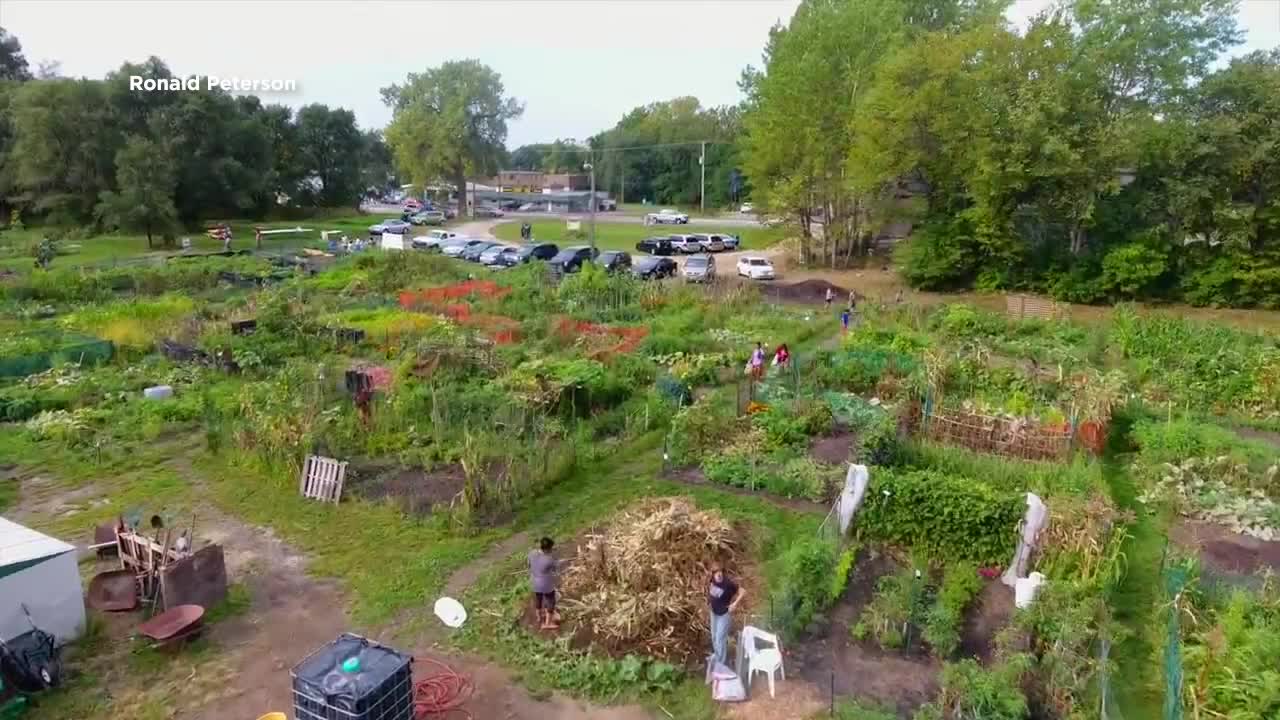“This is a very special place.” A church in the metro hopes to save a community garden.
[anvplayer video=”5160387″ station=”998122″]
Rice Street Gardens in Maplewood is quiet and dormant now, with hundreds of growing spaces covered in snow.
“This is a very special place,” declares Pastor Dana Nelson, with Galilee Lutheran Church. “It’s a safe place. It’s a place to spend May through October. It opens in May and ends in October.”
Nelson and church staffers — their place of worship is just across the street, in Roseville — are thinking about the future, when this place will be green again, tended by hundreds of people.
“266 little farms are on the land, and that’s so beautiful,” Nelson exclaims. “All religions. At least 10 languages are spoken in the garden.”
The pastor explains that since 2016, St. Paul Regional Water Services, which owns the land, has allowed church members, many in the immigrant community, to cultivate the two-and-a-half acre gardens for free.

The only condition is that they clean up the site and remove fencing and any plant waste at the end of the growing season.
“I call it the United Nations garden,” Abraham Watson smiles. “We go from Europe, Asia, everywhere.”
Watson, 76, says he fled a civil war in Liberia in 1990.
He notes he was among the first to garden the plots, while helping to clean up garbage and other debris.
“You have broken bottles, you have glasses, you have metal scrap laying around.” Watson says. “After you demolish a building, you expect crap to be all around, these things buried in the ground.”
The church says since then, 260 families have farmed on the property, growing peppers, collard greens, cucumbers, tomatoes, and other produce.
Enough food for over 1,000 people.
“The way they are expressing their love right now is by going to the garden,” says Esther Brown.
Brown told us how she moved to the United States after fleeing from a civil conflict in Bhutan thirteen years ago.
She says she and her parents lived in a refugee camp in Nepal for several years.
Brown declares all the work her family does in the garden feeds their minds and bodies.
“It improves my physical health, it improves my emotional and mental health,” she says. “When I garden, it improves my health, too, because I eat organic.”
But church leaders say the land where the garden sits is for sale.
They say they fear commercial development could swallow up what was a growing space for the immigrant community.
So Galilee Lutheran is launching a crowdfunding effort to buy that two-and-a-half acres.
“What if we can be in on it, and buy the land?” Nelson asks. “It would then be perpetually there for these couple of hundred families to continue to grow food.”
A spokesperson for St. Paul Regional Water Services says allowing the church to use the land has been a ‘mutually beneficial relationship.’
He notes the agency is not actively advertising the property, it is ‘no longer necessary to our operations.’
Those who tend to these plots say this is about more than a piece of land.
Many — farmers in the countries they fled — have a bond with the earth, and believe that growing things is a part of life.
A kind of hope for a new future.
“The majority of our gardeners are refugees,” Nelson says. “For them to have a piece of land can they can use, that’s very significant, if you have been a refugee and lost your land twenty years back, to have a piece of land you can work with.”
Still, the church faces a big financial challenge ahead.
Nelson says the congregation has raised about $300,000, with a target goal of up to $1 million.
Galilee Lutheran representatives are scheduled to make their case before the Board of Water Commissioners in mid-February.
After that, there would be several discussions about a plan and an appraisal of the property.
Church members say they hope those steps will clear the way to buy the land they’ve worked on for seven years.
“Please let us use the land and continue to garden,” Watson exclaims. “I would do anything, pray to God, to see that garden continue to prosper.”
You can find out more about the Galilee Lutheran Church’s crowdfunding effort here.